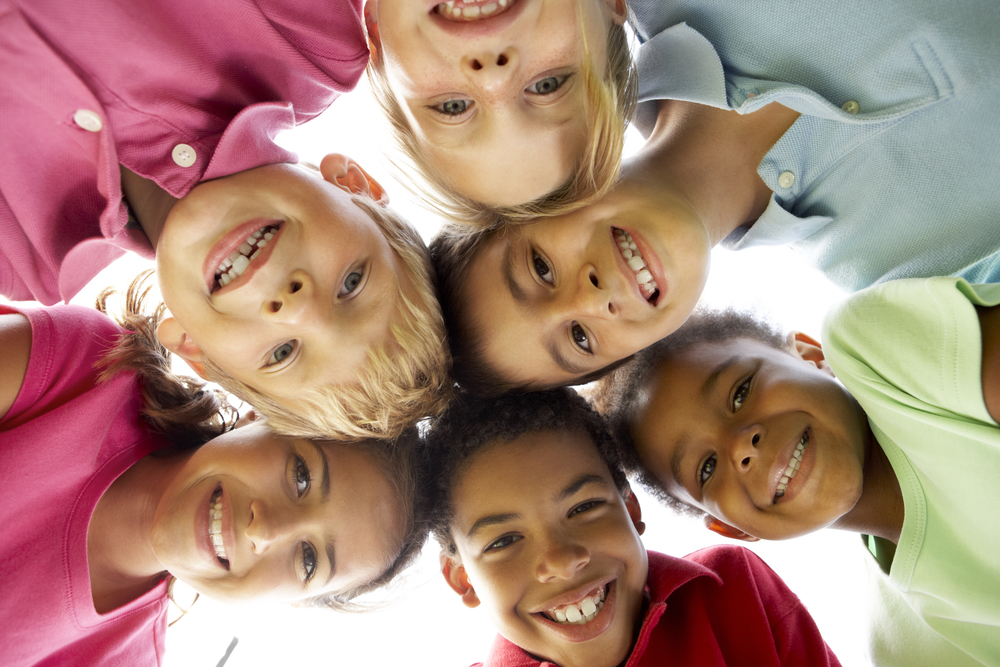In 2020, the issue of mental health is high on the agenda. With a global pandemic adding a large dose of extra anxiety into everyone’s lives, it’s more important than ever before to be open about our emotions, especially when we’re communicating with our kids.
With more families living, working, and learning from home, there’s no denying that the first half of this year has been a struggle for many Australians of all ages. Initial research from the Australian Insitute of Family Studies found that almost half (43%) of respondents reported they or their partner had lost employment, reduced hours or wages; while 40% of adults now always or often ‘actively’ cared for children during work.
These additional factors are adding to an already worrying outlook for the mental health of our kids. In 2016, the Black Dog Institute found that just under one in four 15 to 19-year-olds in Australia met the criteria for having a probable serious mental illness. The top three issues of concern were coping with stress, school or study problems and depression. On top of that, suicide remains the leading cause of death among people aged 15–24.
How adults can help
Instead of bottling up emotions and either imploding or exploding, communicate to children that it is okay to cry or feel angry. Help demonstrate and encourage a good emotional vocabulary so when the time is right, they are able to express what they are feeling.
Sentences like: “He/she did this, so I did this,” might be modified to, “He/she did this and I felt angry, so I did this.” If they can identify their emotion, then you can help them find a constructive way to resolve or manage those emotions without letting them take control. This is especially important in these challenging times, when it’s all too easy for kids to shut down and hide behind their devices.
If students can identify the barriers to their learning or times when they feel stressed or feel frustrated, then they can start to implement self-managing techniques or help-seeking behaviours. These same skills translate to every aspect of life, including their future relationships.
Don’t add to the pressure
Remember that no matter how much work you’re putting into maintaining your child’s school results throughout the pandemic, try your best not make your child feel inadequate or like a failure.
Instead, encourage self-reflection by asking them questions like, “How did you go?”, “How can you improve?”, and “Do you know what you need to do next time?”. Students give pretty honest responses and are often fair judges. Then you can work with them to pinpoint the specific areas that need development, and give them the tools they need to improve – without the sense of pressure.
What to look for in a school
Choosing your child’s school carefully can have a big impact on the future of their mental health, especially when it comes to receiving the ongoing support and care they’ll need as they grow into adulthood.
At Waverley, we put an emphasis on vertical interaction – getting older boys to communicate and befriend the younger ones – which can help with a whole range of issues. Often, the older boys have already experienced many of the challenges that the young ones are facing, and have the emotional maturity to engage in open and honest conversations with them.
Technology is playing its part
Technology is having an impact on this sense of isolation. Children born within the past few decades can’t remember a time without smartphones or social media, and their relationship to it is completely different from those of us who can.
The 2020 pandemic has made our children’s relationship with technology even more complex – particularly if you live in an area that remains under strict lockdown. However, video calls and virtual ‘face-to-face’ interactions are still better than a ‘like’ or ‘comment’ on social media, and can help make your child feel more connected to the world around them. Music and languages are all great subjects to encourage interaction and connection – even if it has to be through a screen.

Graham Leddie is Principal at Waverley College, an independent, non-selective Catholic day school for boys with over 100 years’ history as a school that liberates the potential of students from all backgrounds in its Pre-School, Junior School and Senior School. waverley.nsw.edu.au
Graham has a Masters in Religious Education, a Bachelor of Arts, and a Graduate Diploma in Secondary Education from the Australian Catholic University, and a Masters in Educational Leadership from Australian Catholic University/Boston College.
You may also like to read:









